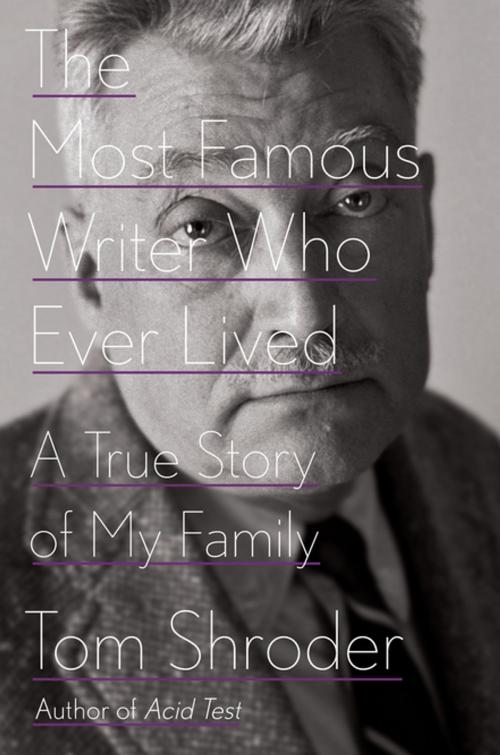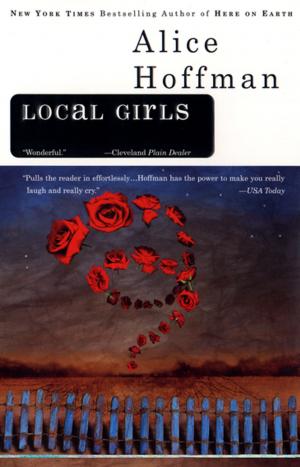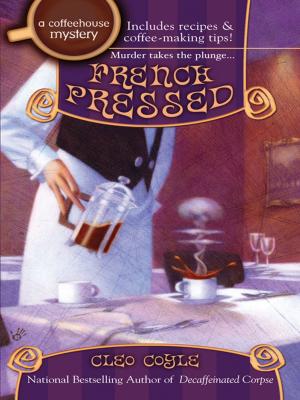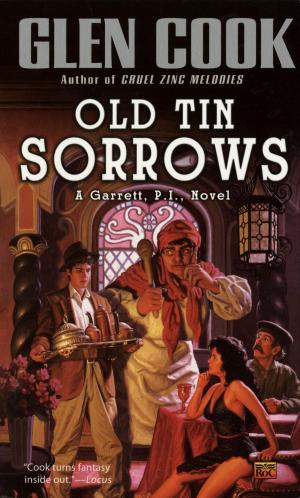The Most Famous Writer Who Ever Lived
A True Story of My Family
Biography & Memoir, Literary, Historical| Author: | Tom Shroder | ISBN: | 9780698194267 |
| Publisher: | Penguin Publishing Group | Publication: | October 4, 2016 |
| Imprint: | Blue Rider Press | Language: | English |
| Author: | Tom Shroder |
| ISBN: | 9780698194267 |
| Publisher: | Penguin Publishing Group |
| Publication: | October 4, 2016 |
| Imprint: | Blue Rider Press |
| Language: | English |
**The Washington Post Book Club's October Pick
One of Washington Independent Review of Book's Favorite Books of 2016
“A grandson of writer MacKinlay Kantor unravels the tangles of his grandfather's life and finds many of those same threads (the good, the bad, the ugly) in his own…A compelling account, suffused with both sympathy and sharpness, of a writer who's mostly forgotten and of a grandson who's grateful.”—Kirkus Reviews**
An award-winning veteran of The Washington Post and The Miami Herald, Tom Shroder has made a career of investigative journalism and human-interest stories, from those of children who claim to have memories of past lives, in his book Old Souls, to that of a former Marine suffering from debilitating PTSD and his doctor pioneering a successful psychedelic drug treatment in Acid Test. Shroder’s most fascinating subject, however, comes from within his own family: his grandfather MacKinlay Kantor was the world-famous author of Andersonville, the seminal novel about the Civil War. As a child, Shroder was in awe of his grandfather’s larger-than-life character. Kantor’s friends included Ernest Hemingway, Carl Sandburg, Gregory Peck, and James Cagney. He was an early mentor to the novelist John D. MacDonald and is credited with discovering the singer Burl Ives. Kantor wrote the novel Glory for Me, which became the multi-Oscar-winning film The Best Years of Our Lives. He ghostwrote General Curtis LeMay’s memoirs, penning the infamous words “We’re going to bomb them back into the Stone Age,” referring to North Vietnam. Kantor also suffered from alcoholism, an outsize ego, and an abusive and publicly embarrassing personality where his family was concerned; he blew through several small fortunes in his lifetime, and died nearly destitute. In The Most Famous Writer Who Ever Lived, Shroder revisits the past—Kantor’s upbringing, his early life, his career trajectory— and writes not just the life story of one man but a meditation on fame, family secrets and legacies, and what is remembered after we are gone.
**The Washington Post Book Club's October Pick
One of Washington Independent Review of Book's Favorite Books of 2016
“A grandson of writer MacKinlay Kantor unravels the tangles of his grandfather's life and finds many of those same threads (the good, the bad, the ugly) in his own…A compelling account, suffused with both sympathy and sharpness, of a writer who's mostly forgotten and of a grandson who's grateful.”—Kirkus Reviews**
An award-winning veteran of The Washington Post and The Miami Herald, Tom Shroder has made a career of investigative journalism and human-interest stories, from those of children who claim to have memories of past lives, in his book Old Souls, to that of a former Marine suffering from debilitating PTSD and his doctor pioneering a successful psychedelic drug treatment in Acid Test. Shroder’s most fascinating subject, however, comes from within his own family: his grandfather MacKinlay Kantor was the world-famous author of Andersonville, the seminal novel about the Civil War. As a child, Shroder was in awe of his grandfather’s larger-than-life character. Kantor’s friends included Ernest Hemingway, Carl Sandburg, Gregory Peck, and James Cagney. He was an early mentor to the novelist John D. MacDonald and is credited with discovering the singer Burl Ives. Kantor wrote the novel Glory for Me, which became the multi-Oscar-winning film The Best Years of Our Lives. He ghostwrote General Curtis LeMay’s memoirs, penning the infamous words “We’re going to bomb them back into the Stone Age,” referring to North Vietnam. Kantor also suffered from alcoholism, an outsize ego, and an abusive and publicly embarrassing personality where his family was concerned; he blew through several small fortunes in his lifetime, and died nearly destitute. In The Most Famous Writer Who Ever Lived, Shroder revisits the past—Kantor’s upbringing, his early life, his career trajectory— and writes not just the life story of one man but a meditation on fame, family secrets and legacies, and what is remembered after we are gone.















